Dear Friends,
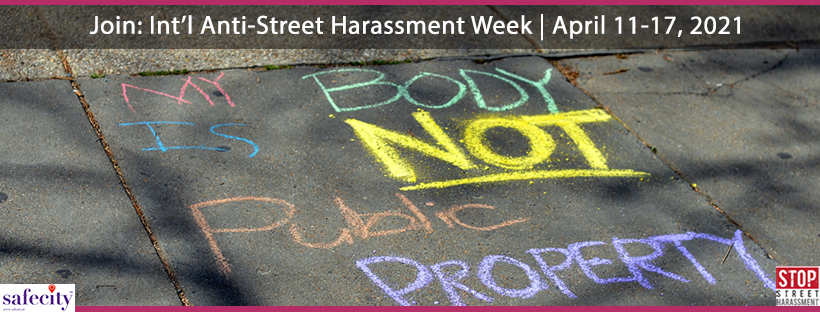
The results of a groundbreaking street harassment survey conducted by our partner L’Oreal Paris of 14,000 women in 14 countries will be released for International Anti-Street Harassment Week (April 11-17).
The findings highlight how global this human rights violation is and also includes statistics from the pandemic year. They show how much this issue continues to affect people everywhere, even during this unusual global health crisis.
Indeed, street harassment is an on-going global health crisis. This is evident by the recent statistics and campaigns around the world that document it and work to end it.
- In Dublin, Ireland, 6 out of 10 women and girls under 20 say they faced street harassment just during the previous week. A group of teenage girls is working to address this problem.
- Across the U.S., Stop APPI Hate said there were 3,800 reports of harassment and hate by Asian-Americans, with women comprising 68% of those reports, including street harassment incidents.
- The UK is grappling with how to make public spaces safer after a police officer murdered Sarah Everard on her way home.
- Women across India spoke out to demand a safe Holi holiday.
- Women in Calgary, Canada, are speaking out against harassment in their community.
- Anti-harassment transit campaign informed by the experiences of teenager girls in the California Bay Area, U.S.
Will you join us next week in speaking out against this human rights violation? Use the hashtag #stopstreetharassment and tag @pinthecreep and @stopstharassmnt on social media.
Need an Idea? — Submit to the Safecity Campaign
Safecity is inviting people to participate in Week by submitting quotes for posters they’ll create and share on social media.
“This year the campaign is Confidence is Beautiful. Confidence to walk down a street without worry, confidence to loiter in public spaces, confidence to travel further to explore work, leisure and more. But that cannot happen if streets are not safe. We need to spotlight the issue, create urgency to act and encourage men to take action.” Submit your quotes and pictures here.
Need another Idea? — Share Your Pandemic Street Harassment Stories
Share your experiences and stories with street harassment across the pandemic – and/or submit artwork to stopstreetharassment@gmail.com.
Sexual Assault Awareness Month
In the U.S., April is Sexual Assault Awareness Month. Learn more about how to get involved with this month-long campaign. April 6 is the Day of Action — find ways to participate.
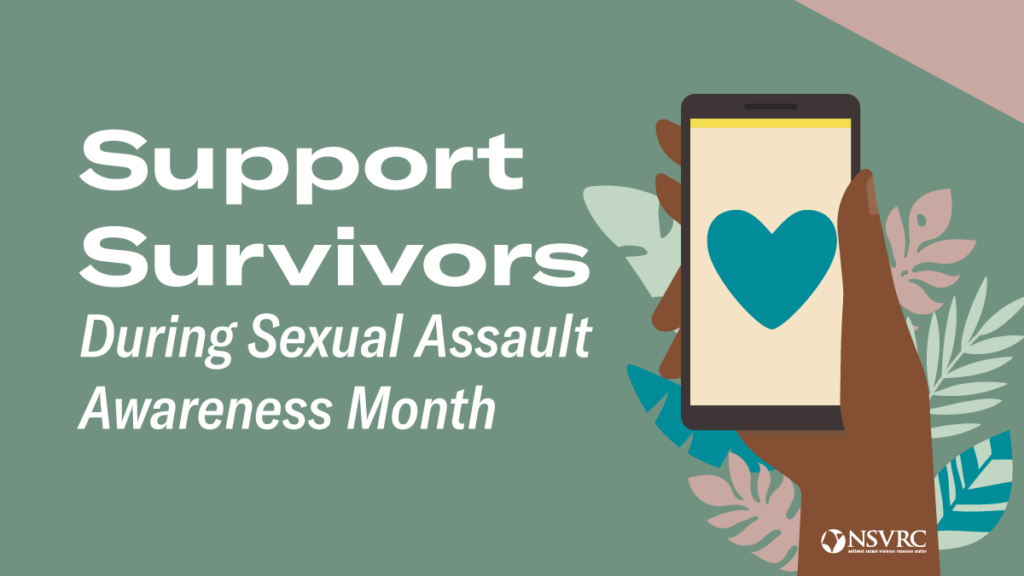
Anti-SH Week Partners
Thank you to Safecity/Red Dot Foundation, Catcalls of NYC and L’Oreal Paris for partnering with us this year. Over the week, you can take part in L’Oréal Paris and Hollaback! training on how to safely intervene if you witness or experience street harassment.
Watch the Catcalls Turns 5 Event
If you missed our joint event with Catcalls of NYC for their 5th anniversary, you can watch it here! What an empowering and uplifting program.
Thank you!
-Holly

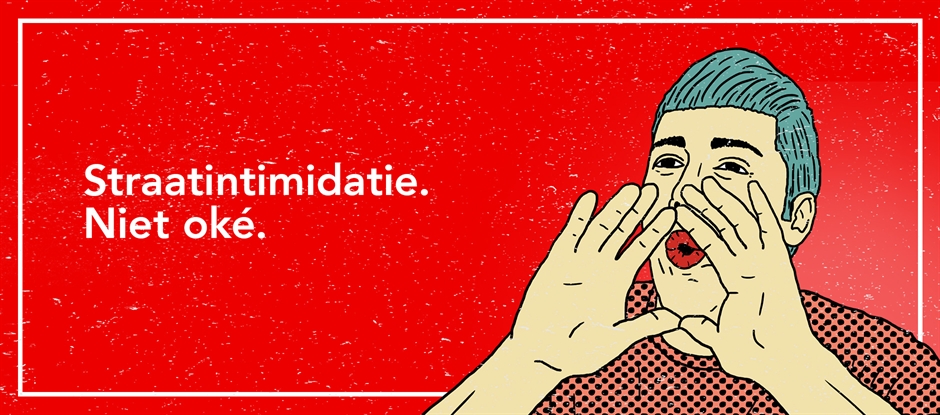
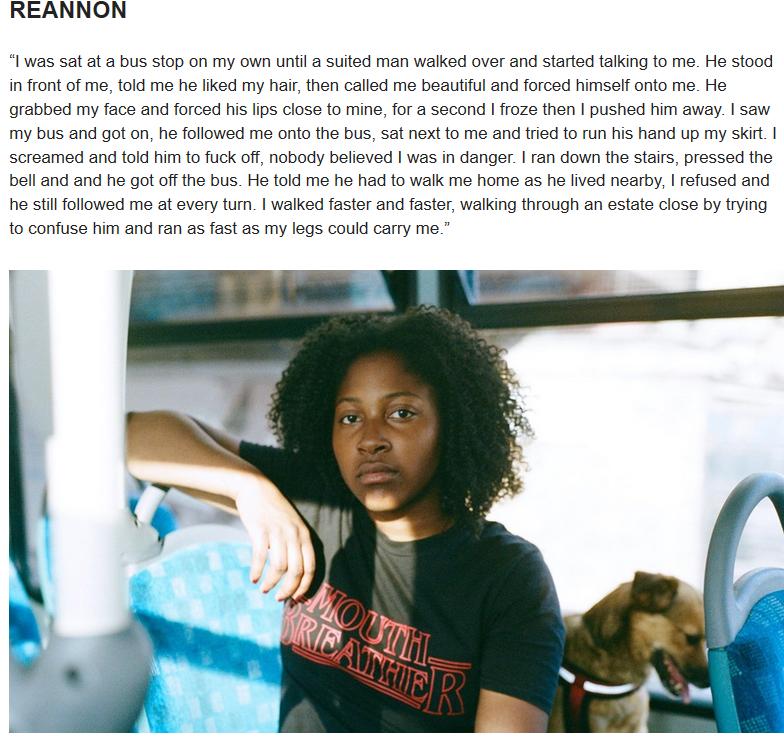
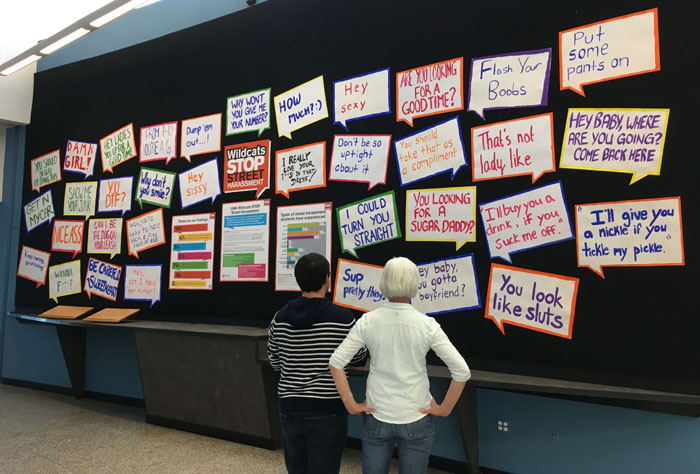

 Abusive male passengers and taxi drivers can make riding public transport in Johannesburg a harrowing experience for a woman. More often than not, a woman faces harassment or sexual abuse aboard a taxi. Taxi drivers and the queue marshals have a notorious reputation for this and there have been many recorded and unrecorded incidents of verbal abuse, harassment, physical violence, sexual assault and rape of girls and women whilst using taxis. One lady spoke to me about how some men thought it funny to poke her breast and how paralysed with fear she felt as she could not stand up and leave the taxi. The other passengers simply looked on and ignored that she was being harassed.
Abusive male passengers and taxi drivers can make riding public transport in Johannesburg a harrowing experience for a woman. More often than not, a woman faces harassment or sexual abuse aboard a taxi. Taxi drivers and the queue marshals have a notorious reputation for this and there have been many recorded and unrecorded incidents of verbal abuse, harassment, physical violence, sexual assault and rape of girls and women whilst using taxis. One lady spoke to me about how some men thought it funny to poke her breast and how paralysed with fear she felt as she could not stand up and leave the taxi. The other passengers simply looked on and ignored that she was being harassed.
 Sonke Gender Justice
Sonke Gender Justice